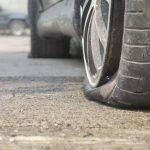We all know our cars need regular maintenance, but what does a tune up consist of anyway?
Most cars should get a tune-up every 10,000 to 12,000 miles, or at least once a year if you don’t drive that far. But if you’re like most people, you probably don’t get your car checked out that much.
We may not think about it that much, but putting off routine tune-ups could cause your car to start shutting down and lead to you buying another one.
To make sure that doesn’t happen, take a look at this basic tune-up guide.
Find Your Online Car Repair Manual Today! ->>
Why Does My Car Need a Tune-Up?
Routine tune-ups make sure your car keeps working well and running smoothly, but they do not necessarily improve how the car already runs.
Think of a tune-up as a preventative maintenance for your engine.
The goal of a tune-up is to keep your car from needing major maintenance in the future. If a tune-up does make your car run better, you have waited too long to get one.
The Tune-Up Confusion…
If you go to a car mechanic and ask for a tune-up, you may not get what you think you’ll get. Strictly speaking, most car mechanics don’t actually provide “tune-ups” anymore.
What does that mean?
Older cars used to require maintenance every 10,000 miles or so, and people would refer to that maintenance as tune-ups. Because cars are so different now than they used to be, cars don’t need the same maintenance.
Today, cars only need one of the tune-up services old cars needed.
When you ask a car mechanic for a tune-up, they most likely won’t know what you mean. Tune-ups can include all sorts of different things, and most auto shops don’t list tune-ups under their services.
Your car still needs routine maintenance, but it is better to look in your car’s owner manual and specify exactly what services you want.
So let’s take a look at the services your car needs for its “tune-up.”
What Does a Tune-Up Consist Of?
Spark Plugs
This is that last surviving service from original tune-ups.
Spark plugs provide electric sparks that create combustion inside the engine, which is what starts the car and keeps it going. If they are worn out or if their wires are crack, they will be replaced during a tune-up.
Check for Clogs
An automotive mechanic will check things like the fuel and air filters to make sure there aren’t any clogs. The mechanic will replace them if any clogs are found, extending the life of the fuel pump.
Car Battery
The car’s battery should also be checked to make sure it is providing the right power to the rest of the car. The mechanic should also make sure there is no corrosion on the battery itself.
Oil Change
Unless you have recently changed your oil, your oil will probably be changed during your car’s tune-up.
Lights
Your mechanic needs to check all the lights in the car to make sure they are still working properly, like headlights, turn indicators, taillights, and brake lights. If a light isn’t working the way it should, it has to be replaced.
Belts
If a mechanic finds any damage to a belt, it will be replaced.
Tires
All tires are inspected to make sure they have the proper air pressure and aren’t unevenly worn down.
This is the short list of things your mechanic should check when you take your car in for a tune-up. Again, look in your car’s manual to make sure you aren’t missing anything that’s recommended for your car.
Don’t Put It Off
Tune-ups are designed to keep your car going. If you never give your car any maintenance, it will probably have more problems much sooner than it should.
Are you still asking that “what does a tune up consist of” question? Ask one of our mechanics and they’ll help your car get what it needs!







